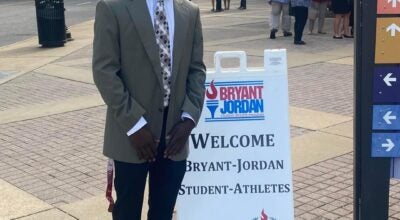College recruiting enters the digital age
Published 8:59 pm Friday, February 19, 2010
In what could be the beginning of a national trend, the Alabama High School Athletic Association entered into an agreement recently with Eporro.com, a Web site that uses a social networking format to connect high school athletes with college coaches.
Athletes using Eporro create profiles, where they can enter information to make themselves attractive to college coaches looking for someone to join the team.
Coaches can search for prospects based on physical measurements like height and weight but also on academic measurements like graduation year, GPA, and what the student scored on his or her ACT or SAT.
Coaches can also make a profile, and prospects can search through the coaches and contact them through the site.
The site kind of greases the wheels of the recruiting process. Partnerships have also been forged with the Gulf South Conference and the Alabama Community College Conference, two leagues that rely heavily on players from our state.
Eporro takes pressure off high school coaches, who all of a sudden don’t have to send out mounds of video on a player to try to find someone who’s interested. And players whose names wouldn’t be out there stand to gain the most because they now have a way to get their names out there.
The situation is beneficial to all the parties involved, including Eporro, which requires a usage fee.
But the question is, what does the AHSAA’s decision mean? Many state athletes are likely to take advantage of the site that wouldn’t have otherwise.
Seeing that a neighboring state’s players have an edge, other states are likely to enter a similar agreement with Eporro, or with the copycat sites that are sure to pop up.
It’s hard to find a negative aspect of this arrangement, except that maybe college coaches could get lazy, relying on cold data instead of getting out to an athlete’s hometown and talking to his high school coach, classmates and teachers—the way it used to be done.
But the NCAA continues to limit the contact college coaches can have with prospects, so another means to finding out about them seems necessary.
Like it or not, the business of recruiting keeps picking up steam.






